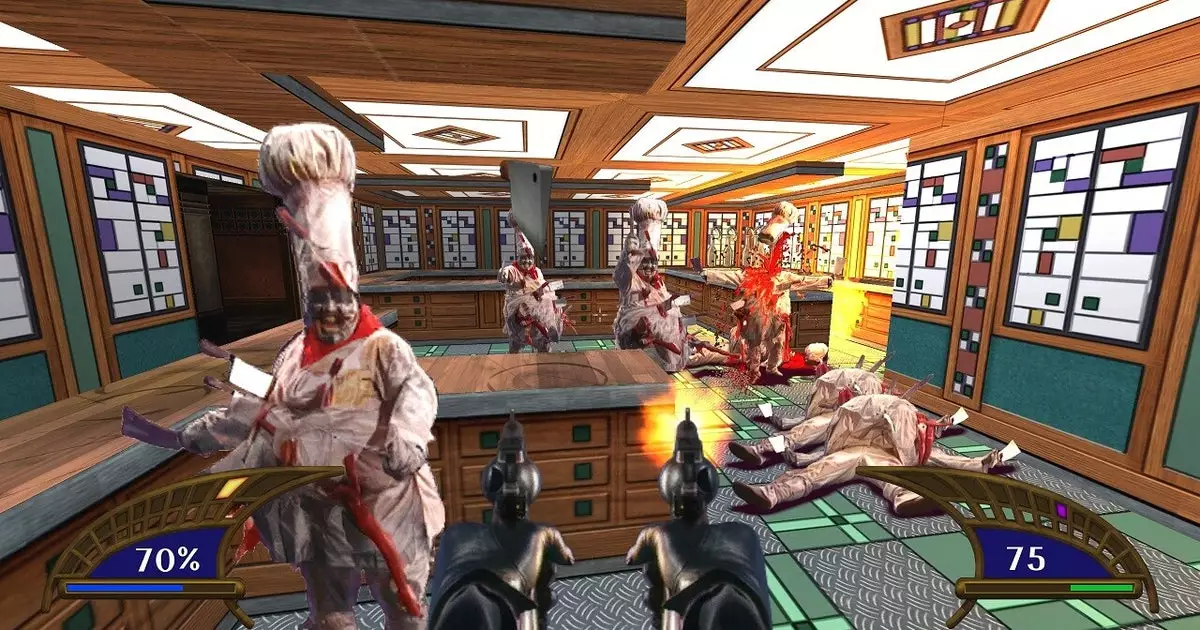In a world where classic games often fall into obscurity, the revival of retro titles can serve as both a trip down memory lane and a fresh exploration of long-lost gameplay mechanics. The latest effort from the talented team at Nightdive Studios showcases their impressive ability to breathe new life into nostalgic titles, as evidenced by their recent remaster of the 1995 first-person shooter, Killing Time. This game originally graced the 3DO console and now returns triumphantly with enhancements that modern gamers can appreciate. For those unfamiliar, this article aims to delve deeper into the game’s essence, its historical importance, and what players can expect from this freshly polished gem.
Killing Time transports players to the haunted Island of Matinicus, where an ominous mansion awaits exploration. Ghostly apparitions and demonic creatures roam its dimly lit corridors, providing a thrilling yet terrifying experience. The unique selling point of the remaster lies not just in its vivid graphics and performance but also in its commitment to preserving the nostalgic atmosphere that the original game aimed to create.
For many, the draw of late ’90s FPS games was the novelty of full-motion video (FMV) cut-scenes that, while sometimes cringeworthy, became a hallmark of the era. Killing Time doubles down on this quirk, featuring over 50 live-action sequences that enhance the narrative and immersion. It’s not every day that players encounter live-action ghosts who drop vital clues about a mansion steeped in mystery.
The game’s tagline captures its essence: “Solve deadly puzzles, uncover the secrets behind a famous mystery, and discover an ancient artifact from Pharaoh Ramses if you can survive long enough to do so.” This mix of adventure, exploration, and heart-pounding survival makes the remaster worth experiencing, even for those who missed it the first time around.
The modern iteration boasts a plethora of enhancements designed to captivate a contemporary audience. Players can expect resolutions up to 4K and frame rates reaching 144 FPS, along with improved anti-aliasing and updated UI designs. This polished aesthetic doubles as an invitation for both seasoned players and newcomers to explore a long-forgotten classic in a fresh light.
Moreover, Nightdive’s remaster merges content from both 3DO and PC platforms, uniting elements that offer a richer gameplay experience. Combat becomes a blend of nostalgia and innovation, particularly when wielding weapons that were once confined to their respective platforms.
Exploration is also elevated with a full 360-degree view that provides unprecedented control over the player’s perspective. Gamers will traverse meticulously crafted environments, from dimly lit interiors to the eerie outdoors, all infused with the unsettling charm of the 1930s. With over 45 unique “killing zones,” players will find themselves constantly engaged, as they apply strategic thinking to navigate through a layout filled with hidden secrets and spine-chilling enemies.
The backstory of Killing Time is as captivating as its gameplay. Originally released on a distinctive red disc, the game shipped with a significant bug that obscured player vision during gameplay. It is fascinating that during the relatively short lifespan of the 3DO, this game was ranked number two in GamesMaster’s list of best titles, a testament to its significance in that era. Collectors now seek out the rare black replacement discs, showcasing the nostalgic allure that continues to captivate gaming enthusiasts.
Nightdive Studios’ remaster of Killing Time is not merely a reboot; it’s an extensive renovation that preserves the charm of the original while breathing new life into gameplay mechanics. With enhanced visuals, integrated historical content, and immersive storytelling, the game offers a compelling experience for both veterans and newcomers alike. As we delve into this relic of gaming history, it’s clear that Killing Time remains a notable entry in the annals of first-person shooters, and its resurrection is a celebration of games that made an impact long before current standards were established.

